All Stories
-
 Neuroscience
NeuroscienceHormone hampers effects of marijuana
Study of pot-blocking brain chemical in rodents could lead to new treatments for cannabis addiction.
-
 Animals
AnimalsFlightless birds face extinction
New Zealand’s flightless birds have limped through the last few decades, but conservation efforts have had some success.
-
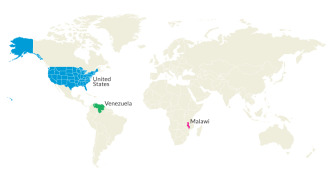 Microbes
MicrobesGut bacteria respect diets, not borders
Malawian and Guahibo gut microbiomes resembled those of herbivorous mammals, while American guts were more similar to carnivores’.
-
 Physics
PhysicsGoogle search fails to find any sign of time travelers
A search of the Internet for signs of time travelers from the future fares no better than the party hosted by Stephen Hawking that nobody attended.
-
 Physics
PhysicsTom’s top 10 time travel movies
The lack of a credible scientific basis doesn’t stop movie makers from making films about time travel.
-
 Climate
ClimateMangroves move up Florida’s coast
Satellite images reveal that the tropical trees are expanding north up Florida’s Atlantic coast, taking advantage of rising winter temperatures.
-
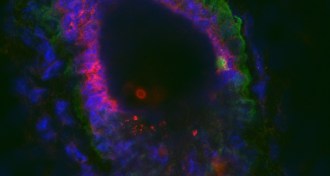 Health & Medicine
Health & MedicineNanoparticle injection blocks breast cancer growth in mice
A nanoparticle-based therapy delivered directly to the mammary ducts could potentially stop pre-cancerous cells from becoming full-blown breast cancer, scientists say.
-
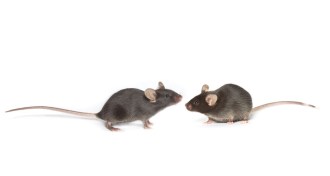 Neuroscience
NeuroscienceAll mice are the same, until they’re not
A new study shows substantial differences in how two closely related mouse strains respond to drugs. It offers new options for linking genes and behavior and may change how scientists think about the similarity of their mouse strains.
-
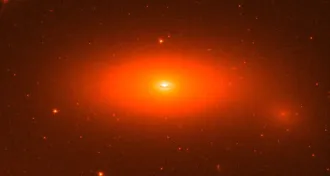 Astronomy
AstronomyRelic of early universe found nearby
A galaxy little changed since the dawn of the universe shows up in our celestial neighborhood.
-
 Health & Medicine
Health & MedicineDistractions raise crash risk for newly licensed drivers
The risk of a crash or near-crash for newly licensed drivers is tripled or greater when they are eating, texting or rubbernecking, researchers report.
-
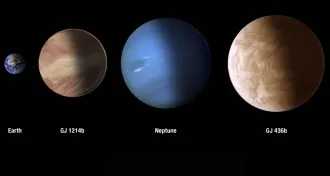 Astronomy
AstronomySigns of cloudy skies seen in two exoplanet atmospheres
Exoplanets GJ 436b and GJ 1214b have signatures of clouds in their atmospheres, but the skies are like nothing seen in the solar system.
-
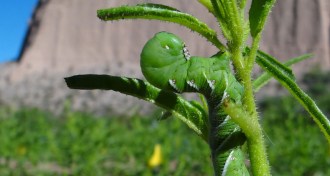 Animals
AnimalsSmoker’s breath saves caterpillars’ lives
Larvae of the tobacco hornworm caterpillar exhale nicotine, driving away predatory spiders.
By Susan Milius